Description
ABSTRACT
The Role of Trade Secrets in the Protection of Intellectual Property Rights
John Onyido*
A vast portion of Intellectual Property protection is regulated under the auspices of Trade Secrets law – a field that is seldom considered in public discourse in this country. In view of the significant role that Trade Secrets play under the present intellectual property regime, this paper carefully analyses the fundamental principles applicable in this area, highlighting at the same time its interconnectedness with and salutary effects on other IP rights. The author also examines some useful instances in which the principles generally applicable to Trade Secrets have been pronounced upon by courts in other common law jurisdictions. The paper advocates the promulgation of a Trade Secrets law that proactively articulates Nigeria’s developmental objectives to complement the existing statutory provisions currently regulating technological innovations, patents and designs, including trademarks and copyright laws in the country.
INTRODUCTION
In this country, the concept of intellectual property rights and its various subsets are relatively fairly well known by both legal practitioners and the owners of these rights.1 However, far less written or talked about is the concept of ‘trade secrets’ and the significant role they play in enhancing and adding value to the more established rights.2 Indeed, the paucity or near absence of decided local authorities with a direct bearing on this area is clear confirmation of its relative obscurity and wraithlike nature.3 There appears to be no local legislation specifically regulating trade secrets in Nigeria. Interestingly however, section 15 of the Nigerian Freedom of Information Act (2011) stipulates that: “A public institution shall deny an application that contains – (a) trade secrets and commercial or financial information obtained from a person or business where such trade secrets or information are proprietary, privileged or confidential, or where disclosure of such trade secrets or information may cause harm to the interests of the third party, provided that nothing contained in this subsection shall be construed as preventing a person or business from consenting to disclosure…” There is however, no attempt to define the term ‘Trade Secrets’ as used in that legislation. The Act was signed into law on 28 May 2011 by Dr. Goodluck Ebele Jonathan, GCFR.
The predictable option open to courts in Nigeria when confronted with cases alleging breach of Trade Secrets is to fall back on the Common Law for answers. These general Common Law rules and limited judicial authorities are in some instances largely inadequate or out of step with recent developments in the field and with more modern solutions intended to address complex legal questions explored in other jurisdictions. With the promulgation of a subject-specific statute to regulate Trade Secret disputes, the courts and the litigants would receive explicit guidance outlined within sufficient parameters to address the intricate questions which generally arise in this field.4
* Partner and Head, Intellectual Property & Technology Law Department S.P.A. Ajibade & Co
- E.g. Trademarks, Patents, Copyright, Entertainment and Media, Sports, Art Law and Franchising
- In an article featured on Reuters online News on 15th February 2011, the alleged re-discovery of the secret Coca-Cola recipe
developed by John Pemberton in 1886 was re-visited. See “Coca Cola says secret of its recipe still intact” by Martinne Geller. accessed 16 February 2015. See also Bruce Watson, “Shhh: 10 Make-or-Break Trade Secrets”, accessed 18 F e b r u a r y 2 0 1 5 a n d M e l a n i e R a d z i c k i M c M a n u s , “ 1 0 Tr a d e S e c r e t s We Wi s h We K n e w ” accessed 18 February 2015 - Most local authorities that address some of the features encountered in the field of trade secrets are usually limited to employment related matters and general breach of confidence actions
- Uche Ewelukwa Ofodile, ‘Regulating Franchising in Nigeria: Legal and Institutional Options to Consider’ Businessday Newspaper (24 October 2013) accessed 14 November 2014 (emphasizing the point that placing exclusive reliance on inherited colonial laws and the common law are inadequate in present times as far as trade secrets protection is concerned)

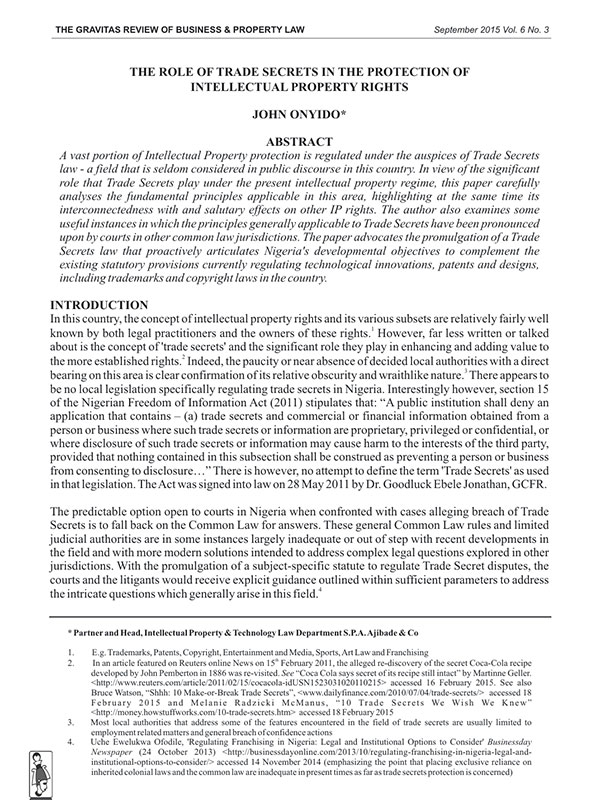
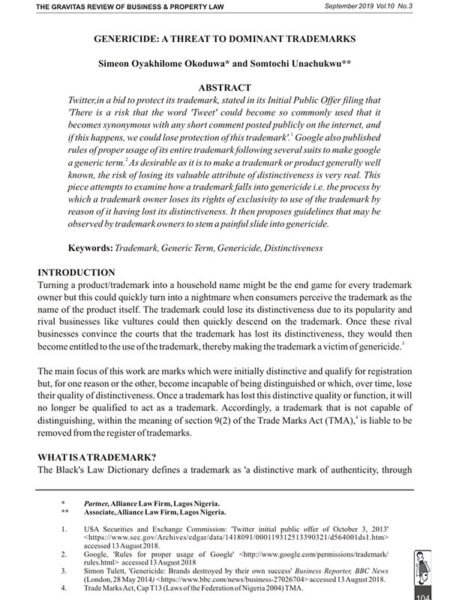
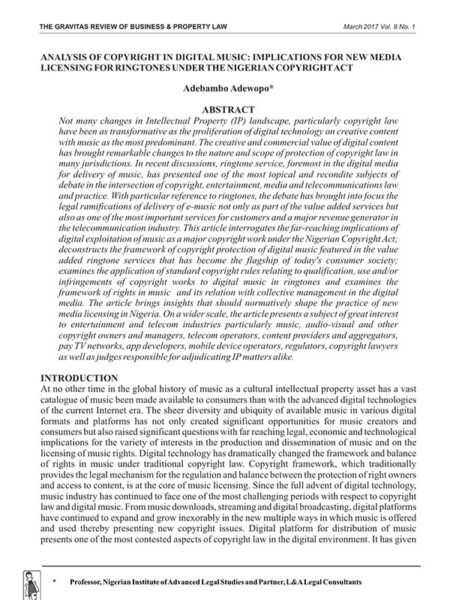
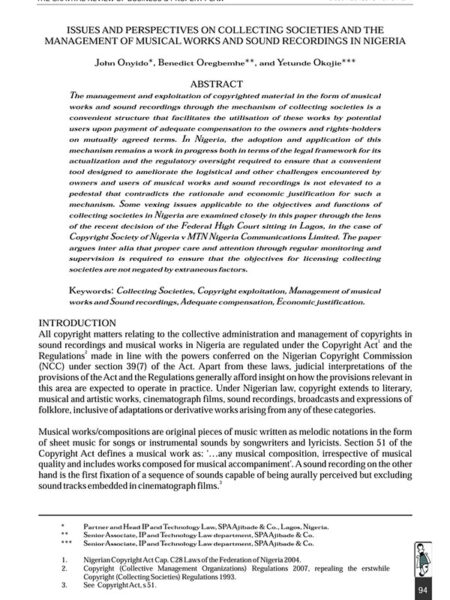
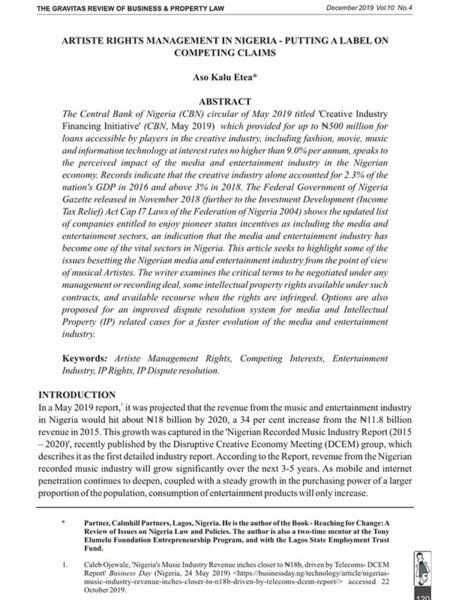


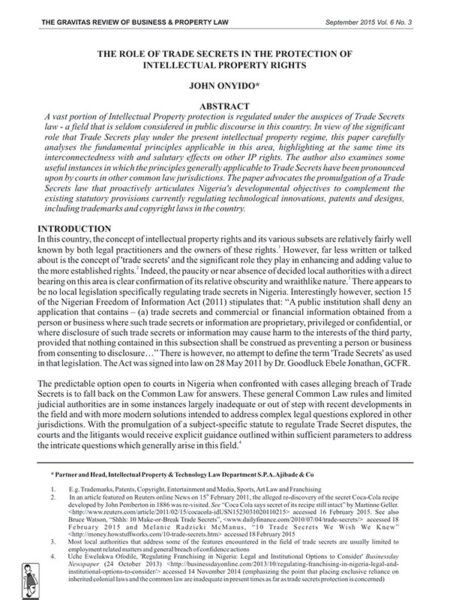
Reviews
There are no reviews yet.